MELOXICAM - ORAL
PHONETIC PRONUNCIATION: (mel-OX-i-kam)
COMMON BRAND NAME(S): Mobic, Vivlodex
GENERIC NAME(S): meloxicam
Uses
USES: Meloxicam is used to treat arthritis. It reduces pain, swelling, and stiffness of the joints. Meloxicam is known as a nonsteroidal anti-inflammatory drug (NSAID). If you are treating a chronic condition such as arthritis, ask your doctor about non-drug treatments and/or using other medications to treat your pain. See also Warning section.
How to use MELOXICAM - ORAL
HOW TO USE: Read the Medication Guide provided by your pharmacist before you start taking meloxicam and each time you get a refill. If you have any questions, ask your doctor or pharmacist. Take this medication by mouth as directed by your doctor, usually once daily. Drink a full glass of water (8 ounces/240 milliliters) with it unless your doctor tells you otherwise. Do not lie down for at least 10 minutes after taking this drug. If you are taking the liquid form of this medication, shake the bottle gently before each dose. Carefully measure the dose using a special measuring device/spoon. Do not use a household spoon because you may not get the correct dose. If stomach upset occurs while taking this medication, take it with food, milk, or an antacid. The dosage is based on your medical condition and response to treatment. The lowest effective dosage should always be used, and only for the prescribed length of time. Do not take more of this medication than prescribed because higher doses increase the chance of stomach ulcers/bleeding. The capsule form of meloxicam delivers different amounts of medication than the tablet and solution forms. Do not switch between the capsule and other forms of meloxicam without your doctor's permission and directions. It may take up to two weeks before you get the full benefit of this drug. Use this medication regularly to get the most benefit from it. Remember to use it at the same time each day. Tell your doctor if your condition worsens.
Side Effects
Precautions
Interactions
Overdose
Images
Reviews
Faq for MELOXICAM - ORAL
Meloxicam is commonly used to reduce pain, inflammation, and swelling caused by conditions like arthritis, tendonitis, and gout.
Meloxicam works by blocking the production of certain substances in the body that cause pain and inflammation.
The recommended dosage of Meloxicam varies depending on the condition being treated. It is essential to follow the instructions provided by your healthcare professional or the medication label.
Common side effects of Meloxicam may include stomach upset, nausea, diarrhea, dizziness, and headache. If these side effects persist or worsen, it is advisable to consult your doctor.
No, Meloxicam is not a narcotic. It belongs to a class of drugs called nonsteroidal anti-inflammatory drugs (NSAIDs).
It is crucial to inform your healthcare professional about all the medications you are taking, including prescription, over-the-counter drugs, and supplements. Some medications may interact with Meloxicam, so it is best to consult your doctor before combining them.
Meloxicam should be avoided during the last trimester of pregnancy and is not recommended while breastfeeding. It is important to discuss the potential risks and benefits of using Meloxicam with your doctor if you are pregnant or breastfeeding.
No, Meloxicam is not addictive. It does not cause physical dependence, but long-term use may increase the risk of certain side effects, such as gastrointestinal problems or kidney damage.
If you miss a dose of Meloxicam, take it as soon as you remember. However, if it is almost time for your next scheduled dose, skip the missed dose and resume your regular dosing schedule. Do not double the dose to make up for a missed one.
Warning
WARNING: Nonsteroidal anti-inflammatory drugs (including meloxicam) may rarely increase the risk of a heart attack or stroke. This effect can happen at any time while taking this drug but is more likely if you take it for a long time. The risk may be greater if you have heart disease or increased risk for heart disease (for example, due to smoking, family history of heart disease, or conditions such as high blood pressure or diabetes). Do not take this drug right before or after heart bypass surgery (CABG). Also, this drug may rarely cause serious (rarely fatal) bleeding from the stomach or intestines. This effect can occur without warning symptoms at any time while taking this drug. Older adults may be at higher risk for this effect. (See also Precautions and Drug Interactions sections.) Stop taking meloxicam and get medical help right away if you notice any of the following rare but serious side effects: bloody or black/tarry stools, persistent stomach/abdominal pain, vomit that looks like coffee grounds, chest/jaw/left arm pain, shortness of breath, unusual sweating, weakness on one side of the body, sudden vision changes, slurred speech. Talk with your doctor or pharmacist about the risks and benefits of treatment with this medication.
Disclaimer
IMPORTANT: HOW TO USE THIS INFORMATION: This is a summary and does NOT have all possible information about this product. This information does not assure that this product is safe, effective, or appropriate for you. This information is not individual medical advice and does not substitute for the advice of your health care professional. Always ask your health care professional for complete information about this product and your specific health needs.
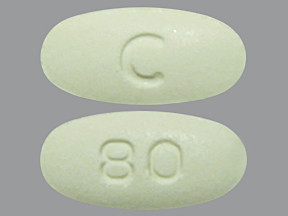
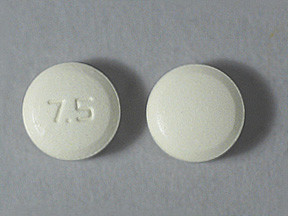
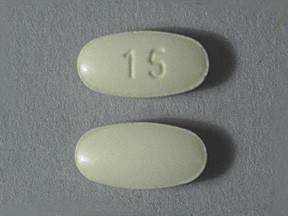
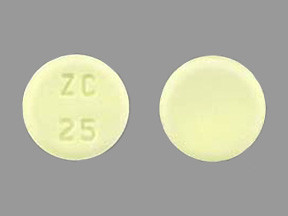
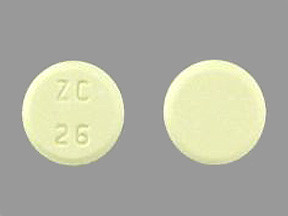
No Reviews Yet